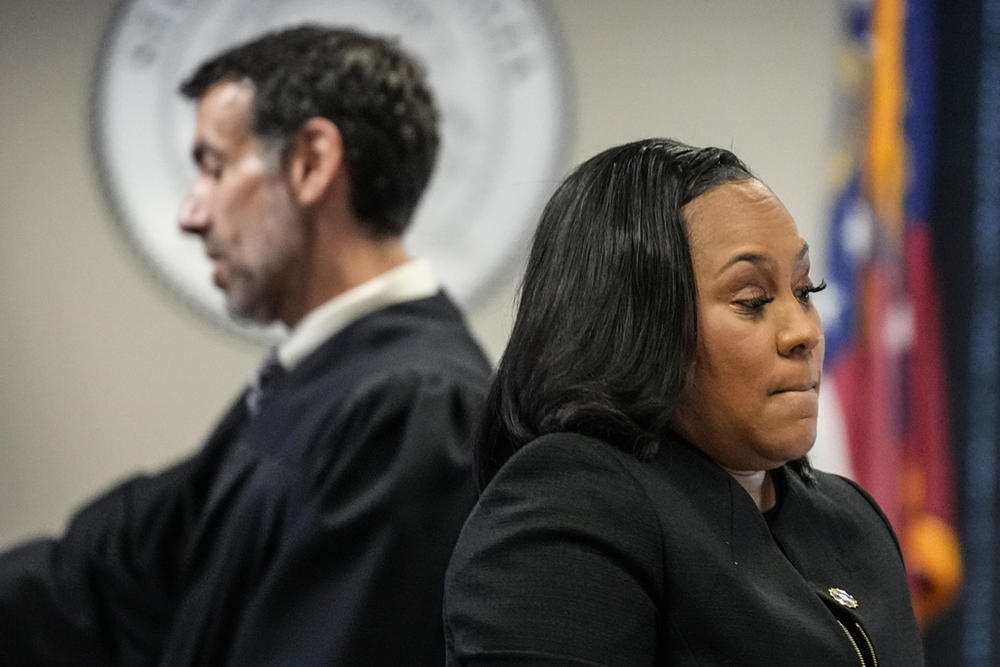
Caption
Fulton County District Attorney Fani Willis (right) and Fulton County Superior Court Judge Robert McBurney speak in the Fulton County Courthouse on July 11, 2023, in Atlanta. A grand jury seated that day in Atlanta considered whether criminal charges were appropriate for former President Donald Trump or his Republican allies for their efforts to overturn his 2020 election loss in Georgia.
Credit: AP Photo/Brynn Anderson

